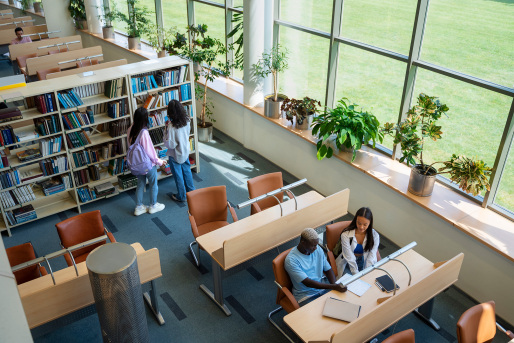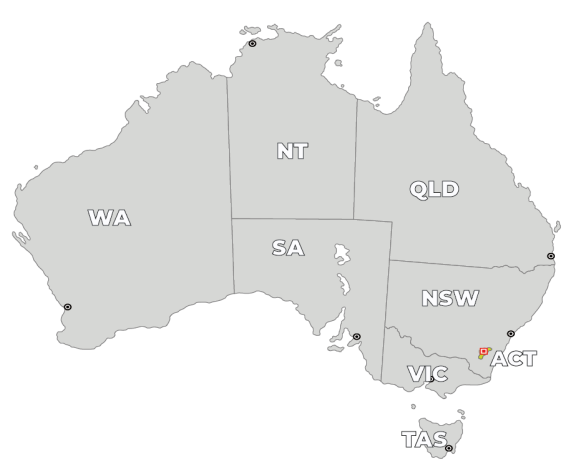
Living in Australia
A guide to choosing a city to live in
Factors to Consider When Choosing a City to Live in Australia
Australia is a popular destination for people from all over the world, and many of them choose to live in one of its vibrant cities. However, with so many options available, it can be challenging to decide which city is the best fit for your lifestyle. Here are some factors to consider when choosing a city to live in Australia.
Australia's culture and lifestyle are as diverse as its population.
For those who enjoy the modern and cosmopolitan lifestyle of big cities, Sydney or Melbourne are excellent options.
For those who prefer to be closer to nature, Hobart and its pristine natural environment, as well as tropical North Queensland, are excellent choices.
Melbourne and Adelaide boast vibrant arts communities, excellent cuisine, and specialty wines that meet international standards.
If you're looking for the quintessential Australian beach lifestyle, you have numerous options to choose from, including Perth's West Coast, Brisbane's Gold Coast, Sydney's East Coast, and several regional areas such as Wollongong and Sunshine Coast.

Culture and Lifestyle
Although food, dining, and entertainment costs can be comparable across many Australian cities, other expenses like rent and transport can vary significantly.
Living in large cities such as Sydney, Melbourne, or Brisbane can lead to higher rental costs. As a solution to this, many students choose to share smaller apartments, sometimes even their rooms, with other students to make living expenses more manageable.
In smaller cities like Adelaide, bigger and better homes can often be obtained for the same price as smaller apartments in larger cities.

Life Costs
Career Opportunities
The career opportunities available in different Australian cities vary greatly.
Sydney is the largest city and offers a wide range of job opportunities in finance, IT, and professional services.
Melbourne is known for its arts and culture scene and has a strong economy with job opportunities in healthcare, education, and technology.
Brisbane is a growing city with employment prospects in healthcare, construction, tourism, and government.
Adelaide is recognized for its high quality of life and offers jobs in healthcare, education, manufacturing, and technology.
Perth is the mining and resources hub with opportunities in mining engineering, geology, project management, and technology, as well as healthcare and education.

Weather
Australia has a diverse climate across its eight states and territories. The country has four seasons, and the northern tropical regions have a wet and dry season.
he seasons in Australia are different from those in the Northern Hemisphere. Summer is from December to February, autumn from March to May, winter from June to August, and spring from September to November.
Sydney experiences hot weather, with over 340 sunny days per year. The maximum temperature averages 26°C/79°F in summer and 16°C/61°F in winter.
Melbourne has changeable weather with "four seasons in one day." The maximum temperature averages 14°C/57°F in winter and 25°C/77°F in summer. However, some days can reach around 40°C/104°F.
Brisbane has a subtropical climate with warm and humid weather throughout the year. Maximum temperatures average 30°C/86°F in summer and 17°C/63°F in winter.
Perth has the most sunny days of any capital city in Australia. Maximum temperatures average 31°C/88°F in summer and 21°C/70°F in winter.
Adelaide is the driest capital city in Australia. Maximum temperatures average 16°C/61°F in winter and 29°C/84°F in summer.
Canberra has a mostly dry climate with warm to hot summers and cool winters. Maximum temperatures average 28°C/82°F in summer and 11°C/52°F in winter.
Hobart has mild, sunny summers and cool winters. Maximum temperatures average 21°C/70°F in summer and 12°C/54.1°F in winter.
Medical and health services
When considering a city to live in, access to quality healthcare is important. Australia's public healthcare system, Medicare, provides basic medical services to all citizens and permanent residents. However, healthcare availability and quality can differ between cities.
Sydney and Melbourne have some of Australia's best hospitals and medical facilities, such as the Royal Melbourne Hospital and St Vincent's Hospital in Sydney. They also have a high concentration of medical professionals, making it easier to access specialized care.
Brisbane and Perth also have excellent health facilities, including the Royal Brisbane and Women's Hospital and the Fiona Stanley Hospital in Perth.
Adelaide has a good public health system with hospitals such as the Royal Adelaide Hospital and Women's and Children's Hospital. However, the city has a lower concentration of medical professionals than other major Australian cities.
Hobart and Canberra have good healthcare facilities, but fewer hospitals and medical specialists than other major Australian cities. This can lead to longer wait times for specialized care.

Education
Australia has a high standard of education and each state and territory has its own education system. When considering a city to live in, it is important to take into account the educational needs of yourself or your family.
Sydney and Melbourne are home to some of Australia's top universities, including the University of Sydney, the University of Melbourne, and Monash University. These cities also have excellent public and private schools, making them popular choices for families.
Brisbane and Perth also have highly regarded universities and quality schools, but are generally more affordable than Sydney and Melbourne.
Adelaide has a reputation for its quality education system, with institutions such as the University of Adelaide and Flinders University, as well as a good selection of public and private schools.
While education in Hobart and Canberra is also of a high standard, these cities have fewer university options compared to other major Australian cities.

Australia is a federation of six states and two territories. Each state has its own government and legislature and is responsible for many of the day-to-day operations within its borders. Here's a brief overview of the six states of Australia.
New South Wales (NSW) New South Wales is the oldest and most populous state in Australia and is home to the city of Sydney. The state has a diverse economy, with industries such as finance, tourism, and agriculture.
Victoria (VIC) Victoria is known for its cultural offerings, including the city of Melbourne and the Great Ocean Road. The state's economy is driven by industries such as healthcare, education, and manufacturing.
Queensland (QLD) Queensland is known for its warm climate and tropical beaches, including the Great Barrier Reef. The state's economy is driven by industries such as mining, agriculture, and tourism.
Western Australia (WA) Western Australia is Australia's largest state and is known for its natural resources, including iron ore and natural gas. The state's economy is driven by industries such as mining, agriculture, and tourism.
South Australia (SA) South Australia is known for its wine regions and natural attractions such as Kangaroo Island. The state's economy is driven by industries such as agriculture, manufacturing, and tourism.
Tasmania (TAS) Tasmania is an island state located south of the Australian mainland. The state is known for its rugged natural beauty and has a diverse economy, with industries such as agriculture, forestry, and tourism.
Australian State
Infrastructure and Transportation
When choosing a city to live in Australia, infrastructure and transportation are important factors to consider. Here's a comparison of infrastructure and transportation in different cities in Australia.
Sydney is the largest city in Australia and has an extensive public transportation system, including trains, buses, and ferries. The city is also known for its iconic infrastructure, such as the Sydney Harbour Bridge and the Opera House. However, due to the city's size and population, traffic congestion can be an issue during peak hours.
Melbourne is known for its efficient public transportation system, including trams, trains, and buses. The city also has an extensive network of bike paths and is generally considered bike-friendly. Melbourne's infrastructure includes several notable landmarks, such as the Flinders Street Station and the Eureka Tower.
Brisbane's public transportation system includes buses, trains, and ferries, but it is not as extensive as those in Sydney and Melbourne. The city's infrastructure includes several notable bridges, including the Story Bridge and the Kurilpa Bridge.
Perth's public transportation system includes buses and trains, and the city is known for its bike-friendly infrastructure. Perth also has several notable landmarks, such as the Bell Tower and the Perth Cultural Centre.
Adelaide public transportation system includes buses, trains, and trams, and the city is known for its easy-to-navigate layout. Adelaide's infrastructure includes several notable landmarks, such as the Adelaide Oval and the South Australian Museum.
Hobart's public transportation system includes buses and ferries, but it is not as extensive as those in other major cities in Australia. The city's infrastructure includes several notable landmarks, such as the Tasman Bridge and the Museum of Old and New Art.
Canberra Canberra's public transportation system includes buses and trains, but the city is known for its bike-friendly infrastructure. Canberra's infrastructure includes several notable landmarks, such as the Australian War Memorial and Parliament House.


"Millennium Migration is the Premier Immigration Company for All Your Needs"
If you're looking for an immigration company that can help you navigate the complex immigration process, look no further than Millennium Migration. Our team of expert immigration lawyers and consultants are dedicated to making your immigration journey as smooth and stress-free as possible. With a focus on providing exceptional customer service and attention to detail, we ensure that each and every one of our clients receive the support and guidance they need to succeed in their immigration journey.

